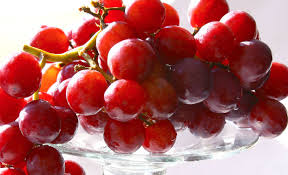
Very early pregnancy symptoms, then no doubt there are signs that very early on that you are pregnant. The fertilized egg is implanted in about seven days after his arrest. Implantation of the first symptoms of pregnancy, begin to appear. Changes in hormone levels and the body begins to react to the new hormone levels.
The initial concerns about the pregnancy is completely overshadowed by the most unpleasant symptom known as morning sickness.
"This morning," This term may be misleading, because the symptoms often continue throughout the day. Nausea during pregnancy can begin before you know you are pregnant almost immediately after conception has occurred. Maybe the reports to you.
These are early signs of pregnancy can be very painful, especially if you are still reeling from the discovery that you are pregnant. If there are mixed feelings about the pregnancy and the possible end point, it is very painful as the disease carries a constant reminder of the reality of the pregnancy.
In the early morning sickness can be very violent. It happens to go to bed wondering why I do not know anyone to wake up, that he was hit by a bus. All sorts of symptoms, physical and spiritual, can happen early in pregnancy, and explains, "morning sickness", a generic name. The following list describes the experiences of women in the report:
1.Fatigue
Fatigue Fatigue / tiredness in pregnancy may be worse than the night after the birth. The women want to sleep more often than usual, and even sleep with only a slight effect on fatigue and sleepiness. Not often the whole day in bed and you feel tired! This may be completed in the first week of the pregnancy, it does not seem infinite. Start to worry about how to deal with the child, if you can not cope with fatigue, fortunately, this objection is raised, the development of the pregnancy.
2.Nausea
Nausea and vomiting, fatigue, systemic diseases, some women may experience the most debilitating pregnancy. This can affect every aspect of their lives that this is not the practice of everyday life almost impossible. Despite the fact that the debilitating effects only in extreme cases can lead to vomiting, surgery or treatment. Indeed can be done to stop vomiting during pregnancy, and most women just try to survive and adapt their lives as possible, hoping the symptoms go away quickly.
3.hunger
Strange taste will be "a" or hunger. Many women have reported a metallic taste in the mouth. Women's Classic refuse certain foods or develop problems with certain foods. This can be a good adaptive reasons for women's "Crave" certain foods, perhaps, their bodies, to determine nutritional needs. In practice, however, often point to, that seems unlikely. In extreme cases, non-food, coal is the object of desire, which would be difficult to explain, under physiological conditions.
4.Headache
Headache, aches and pains.
5.Mood
Tears, anger bursts, anxiety. But when these feelings can be confusing for parents-to-be, especially for pregnant and wanted to plan.
Do not forget to take care of themselves, even before pregnancy. Do not drink, and stop smoking. Eat lots of fresh fruits and vegetables. Five of these early signs of pregnancy are trying to figure out how to make, because only the proper knowledge can ensure a healthy pregnancy and healthy baby.

